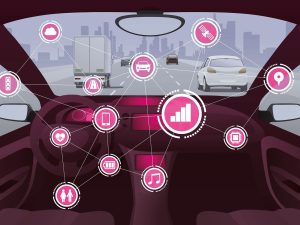
The Economic Impact of Autonomous Vehicle Technologies
The advancement of autonomous vehicle technologies has been one of the most significant technological developments in recent years. Beyond the exciting possibilities for transportation, autonomous vehicles have the potential to reshape the global economy in profound ways. As a seasoned technical copywriter with a decade of experience in this field, I’m here to provide expert insights into the economic impact of autonomous vehicle technologies.
The Growth of the Autonomous Vehicle Market
Accelerated Development
The autonomous vehicle industry has witnessed rapid development, with major players in the automotive and tech sectors investing heavily in research and development. Companies like Tesla, Waymo, and General Motors have made substantial strides in autonomous vehicle technology, bringing self-driving cars closer to reality.
Diverse Applications
Autonomous vehicles are not limited to passenger cars. They have applications in various sectors, including logistics, delivery services, agriculture, and public transportation. This diversity opens up numerous economic opportunities across different industries.
Economic Benefits
Improved Safety
Autonomous vehicles have the potential to significantly reduce traffic accidents and fatalities. The economic benefits of fewer accidents are substantial, including reduced healthcare costs, lower insurance premiums, and increased productivity due to reduced congestion caused by accidents.
Enhanced Efficiency
Autonomous vehicles can optimize traffic flow and reduce congestion by communicating with each other and traffic infrastructure. This improved efficiency translates into time and fuel savings for businesses and individuals alike.
New Business Models
The autonomous vehicle industry is expected to give rise to new business models and services. Companies offering autonomous ride-sharing, mobility-as-a-service (MaaS), and last-mile delivery solutions have the potential to create jobs and stimulate economic growth.
Job Creation and Transformation
Technological Employment
While there may be concerns about job displacement due to automation, the development and deployment of autonomous vehicles will create a demand for skilled workers in areas such as software development, data analysis, cybersecurity, and vehicle maintenance.
Transportation Industry Evolution
The transportation industry will undergo a transformation as autonomous vehicles become more prevalent. Traditional roles, such as truck drivers and taxi drivers, may evolve into new roles that focus on monitoring and maintaining autonomous vehicle fleets.
Challenges and Considerations
Regulatory Framework
The widespread adoption of autonomous vehicles depends on the establishment of clear and comprehensive regulatory frameworks. Governments and regulatory bodies must address safety standards, liability issues, and data privacy concerns.
Infrastructure Investment
To fully realize the economic benefits of autonomous vehicles, significant investments in infrastructure are required. This includes the development of smart roads, traffic management systems, and charging or refueling stations for electric and hydrogen-powered autonomous vehicles.
Transition Period
The transition to autonomous vehicles may be gradual, with mixed fleets of traditional and autonomous vehicles coexisting for some time. This period of transition presents both challenges and opportunities for the economy.
Global Competition
Geopolitical Implications
The development and deployment of autonomous vehicle technologies are seen as a strategic advantage in the global economy. Countries and regions that lead in this field may gain a competitive edge in various industries, influencing geopolitical dynamics.
Collaboration and Partnerships
To maintain a competitive position, many companies are forming partnerships and collaborations with other industry players, including technology companies, automotive manufacturers, and research institutions. These partnerships contribute to the global economy by fostering innovation and knowledge sharing.
Conclusion
The economic impact of autonomous vehicle technologies is vast and multifaceted. While there are challenges and considerations to address, the potential benefits include improved safety, enhanced efficiency, job creation, and the emergence of new business models. As autonomous vehicles continue to evolve and become an integral part of our transportation ecosystem, their economic significance will only grow. Governments, businesses, and individuals alike should embrace the opportunities and collaborate to ensure a smooth and economically beneficial transition to a future with autonomous vehicles.

